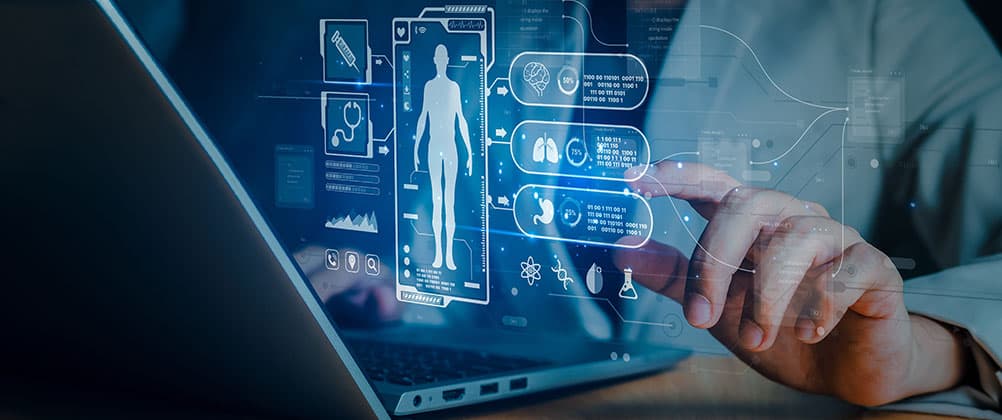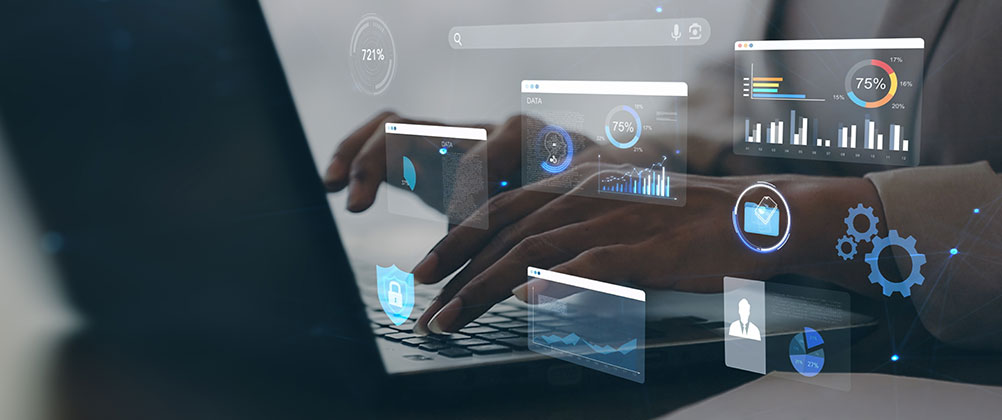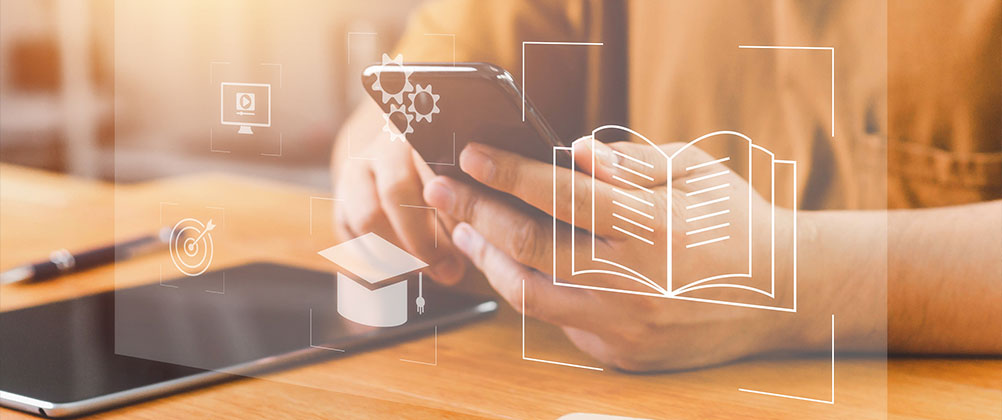The Ultimate Guide to LMS for Healthcare Industry

Inefficient communication, coupled with the lack of a streamlined LMS for healthcare industry, costs hospitals millions of dollars every year. Healthcare organizations can curb such losses by implementing modern technological solutions that streamline and automate communication. Collaborative Learning methods can open avenues to provide adequate staff training and improve overall team productivity. While the goal is to spend less time on training while learning more relevant things, an LMS platform can effectively upgrade healthcare training.
Why Streamline an LMS for Healthcare Industry?
A skilled, educated, and flexible workforce should be the priority for every industry. However, there is a growing shortage of experienced and well-trained healthcare workers in many parts of the world. We need to create awareness that L&D does not cease once people begin their professional careers to counteract this trend. In addition, healthcare providers must keep up with new technologies and techniques to broaden their knowledge and skills. This means providing streamlined training is an absolute requirement for any healthcare professional who desires to yield high-quality patient care.
All fields need a staff that is knowledgeable, adaptable, and skilled, but the healthcare sector is experiencing a rising scarcity of these workers. Even after starting a career, learning and development (L&D) must continue. In order to give high-quality care, healthcare providers need to be up to date with innovations. This is where a strong (learning management system) LMS for healthcare industry is useful. Staff members are guaranteed effective onboarding, streamlined compliance training, and ongoing learning opportunities thanks to an LMS, which simplifies the development, delivery, and administration of training. This equips them with the know-how and abilities needed to provide patients with outstanding treatment.
Due to budget constraints and understaffing, many hospitals and practices find it difficult to rely on traditional training institutes. Sending employees out for in-person seminars disrupts workflow and is difficult to accommodate, frequently necessitating overtime for colleagues to cover shifts.
This is where eLearning, delivered via a Learning Management System (LMS) tailored to the healthcare business, comes in as a powerful option. An LMS for healthcare provides various benefits that explicitly address these issues:
- Cost-effective: Eliminates travel and venue costs associated with traditional training centers.
- Reduced overtime: Employees can access and finish training courses on their own time, reducing the need for coworkers to cover shifts.
- Improved Scheduling Flexibility: LMS allows learners to complete training when it is convenient for them, such as during downtime or off-shifts.
- Streamlined Operations: A centralized platform streamlines training administration, lowers administrative burdens, and ensures consistent delivery of educational information.
By implementing an LMS for healthcare, institutions may overcome the constraints of traditional training techniques and provide their personnel with the information and skills required to offer great patient care, all while maintaining within budget and optimizing staffing resources.
Bridging Healthcare Training Gaps with an LMS
We all relate to the healthcare sector emotionally, physically, cognitively, and financially. Thereby, the influence of the new economy and technology in healthcare need quick attention to handle the challenges they present.
1. Cybersecurity – Ransomware, data breaches, and other cybersecurity threats are not new to the healthcare business. The Covid-19 pandemic has demonstrated how susceptible sensitive patient health information is.
2. Patient’s Experience –Changes in the medical insurance sector show how people bear a share of their healthcare costs and naturally expect better services from their providers.
3. Integrated Health Services and Information – The utilization of linked medical devices and AI-integrated software applications offers healthcare establishments a large quantity of data to produce insights.
As the volume of patient medical records, clinical notes, and administrative data grows tremendously, new methods for storage and administration will be necessary. The enhanced database would benefit the hospital’s patients and record keepers substantially. It will make information more convenient and accessible, allowing patients to plan appointments and keep track of their treatment more conveniently.
4. Slow adoption of Information Technology – The Internet is already a key agent in the healthcare system, thanks to advances in information technology. The automation of clinical, financial, and administrative processes is critical to improving quality, reducing mistakes, increasing customer trust in the healthcare system, and increasing efficiency.
5. Big Data – Healthcare poses difficulties as information gets dispersed among numerous parties and systems, including payers, providers, and patients. To improve the patient experience, clinicians cannot rely on a single “source of truth.
LMS for Healthcare Industry: Transforming Training & Care
Healthcare providers must constantly upgrade their competence in studying and researching new diseases and illnesses, adhering to pre-defined, organization-specific SOPs, and upskilling for professional advancement and sustainability. In this quest, a Learning Management System (LMS) offers many benefits as a learning and development (L&D) component provides an inexpensive and highly effective training platform for the healthcare business.
Here are six crucial LMS features that can change the game:
1. Ease in Compliance and Patient Safety awareness – In the high-stake and high-regulation healthcare sector, regulations and standards get strengthened to reduce risks. A Learning Management System (LMS) provides a centralized, secure, and trustworthy platform for hosting, delivering, and monitoring compliance training. It can promote a culture of compliance among employees rather than treating it as a rote duty. Similarly, an LMS assists in developing patient safety initiatives for meaningful and enduring change. An efficient LMS also helps create and maintain a patient safety culture with patient-centered care as its linchpin.
2. Centralized content management – Healthcare best practices, processes, and laws evolve continuously due to new research and technology breakthroughs. Therefore, healthcare courses must get regularly updated and managed centrally to remain relevant. It is faster to modify eLearning courses on an LMS than to update traditional training content and send invites for refresher courses. Changes to training materials may be made promptly and made available to all students, even if they are geographically scattered. Importantly, this new content is often better retained when presented via an LMS.
3. Simplified on-the-job training – A good training program involves several intricate moving pieces. One of the most important is content generation and engaging information delivery. Whether the people you’re teaching are new to the organization or changing jobs, an adaptive LMS will make the knowledge transfer easier and keep your new trainees on track. In addition, LMS makes it simple to group training activities into bundles that may be reassigned. Allocating the same bundle to other people who require the same training on-demand can help you save time and resources.
4. Easily track training – Learning Management Systems can monitor and track employee learning progress and publishes the results in a built-in detailed and shareable report. These reports and analytics are used extensively to assess learning efficacy based on course completions, quiz results, and milestones. It also helps determine whether extra training is necessary. This feature aids in the continuous and intelligent development of career plans.
5. Mobility that allows streamlined/personalized learning – Work in healthcare is complicated and arduous at all levels. As a result, L&D must provide employees with the freedom to study on their schedules and deliver seamless learning opportunities regardless of time, location, or learning device. An LMS’s device-agnostic capability allows eLearning material to seem similar across devices like desktops, laptops, smartphones, and tablets. Compared to traditional approaches, using this feature leads to increased course completion and engagement rates. As a result, skilled LMS companies must have native mobile apps that integrate with the learning platform.
Skill Lake: A Perfect Fit – LMS for Healthcare Industry
Skill Lake offers one-of-a-kind healthcare workforce solutions that include machine learning and AI. You can use our technology to conduct healthcare staff assessments, give customized education, and possibly address long-standing clinical workforce concerns.
Skill Lake assesses skill shortages and quickly offers training based on company needs. This learning management system allows firms to modify training with the changes in corporate strategy. The system enables learning from anywhere, anytime, via easy and secure mobile applications. It includes powerful, lightweight, distraction-free content production tools for creating mashups, assessments, exams, and more. Here, instructors and mentors administer periodic tests and tasks to track and assess knowledge retention.
Using our LMS for healthcare is an efficient way to teach staff about consistent laws, share system changes, track all employees, and assess the knowledge levels of the staff. Unlock your full business potential with Skill Lake.
Get started by taking a quick demo of our LMS now!
Build a culture of continuous learning with Skill Lake’s state-of-the-art people development platform. Give your employees professional training to help them excel in their job roles and propel your business to greater efficiency and success.
Start Today

Aarathy Jayakrishnan
Aarathy is an e-learning professional and enthusiast with a keen understanding of learning and development concepts. She writes insightful content, unraveling the possibilities that e-learning holds, and strives to make education open for all.